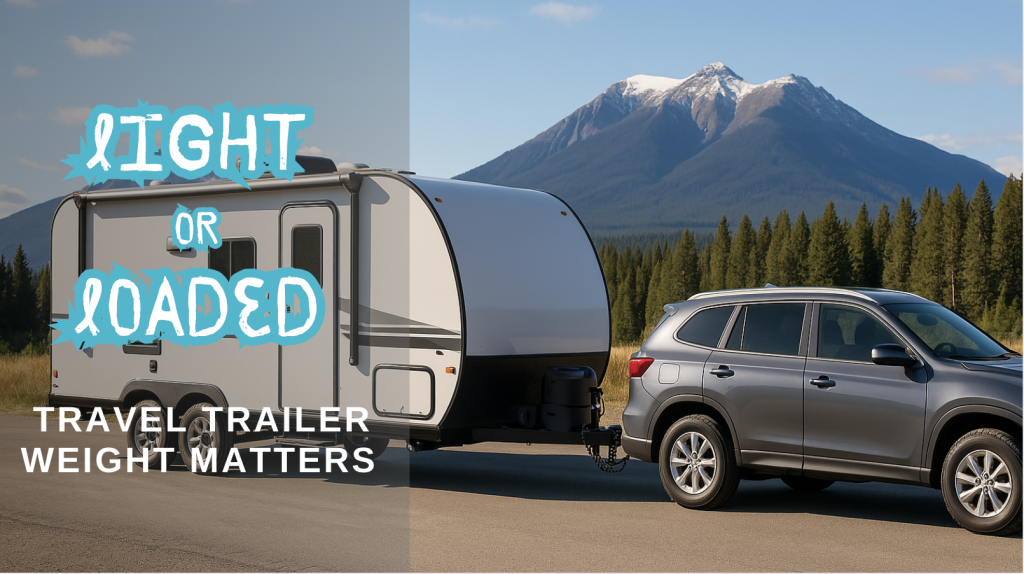Planning a road trip with your travel trailer? The weight of your mobile vacation home might not seem exciting, but it’s the make-or-break factor in your journey’s success.
From safety on mountain passes to fuel efficiency on long highways, understanding travel trailer weight impacts everything about your adventure.
Too many campers hit the road completely unaware of how heavy their setup really is—until problems arise. We’ll break down everything about trailer weights in simple terms, helping you avoid costly mistakes and dangerous situations.
We’ll cover average weights by size, explain those confusing terms on your trailer’s sticker, and share practical tips for managing your load effectively. Your perfect camping trip starts with knowing your numbers!
What is the Average Travel Trailer Weight?
Camping trips and road adventures require good planning, especially when hauling a travel trailer. Knowing how much your home-on-wheels weighs is vital for safe towing and staying within your vehicle’s limits.
The difference between a successful family vacation and a roadside disaster often comes down to just a few hundred pounds.
With so many trailer sizes and styles available today, finding your perfect match means understanding the numbers that matter most.
1. Size Matters: Travel Trailer Weight by Length

- Small (10-12 feet): 1,200-1,400 pounds
- Medium (16-20 feet): 2,000-3,000 pounds
- Standard (22-24 feet): 3,000-3,600 pounds
- Large (26-30 feet): 4,000-5,500 pounds
- Extra Large (34-38 feet): 6,000-8,500 pounds
These numbers show empty trailers. Your actual towing weight will be higher once you add your gear, food, water, and other items.
2. Weight Terms You Should Know
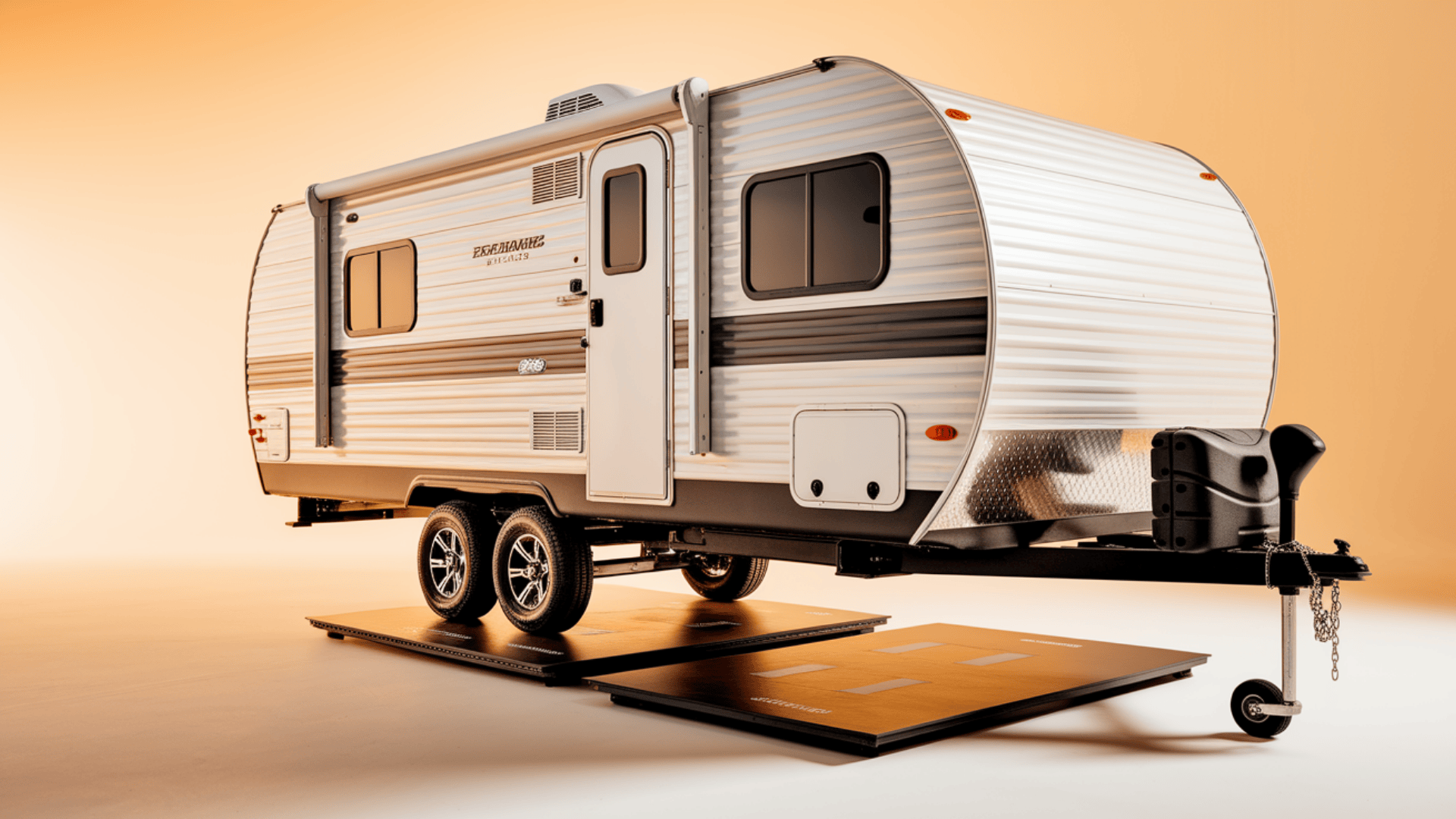
Getting a handle on trailer weight means learning some key terms:
- Dry Weight: How much the trailer weighs empty from the factory
- Cargo Capacity: How much stuff you can safely add
- GVWR (Gross Vehicle Weight Rating): The maximum total weight your trailer should ever reach
- Tongue Weight: The downward force on your hitch (usually 10-15% of total weight)
3. The Real-World Weight Formula
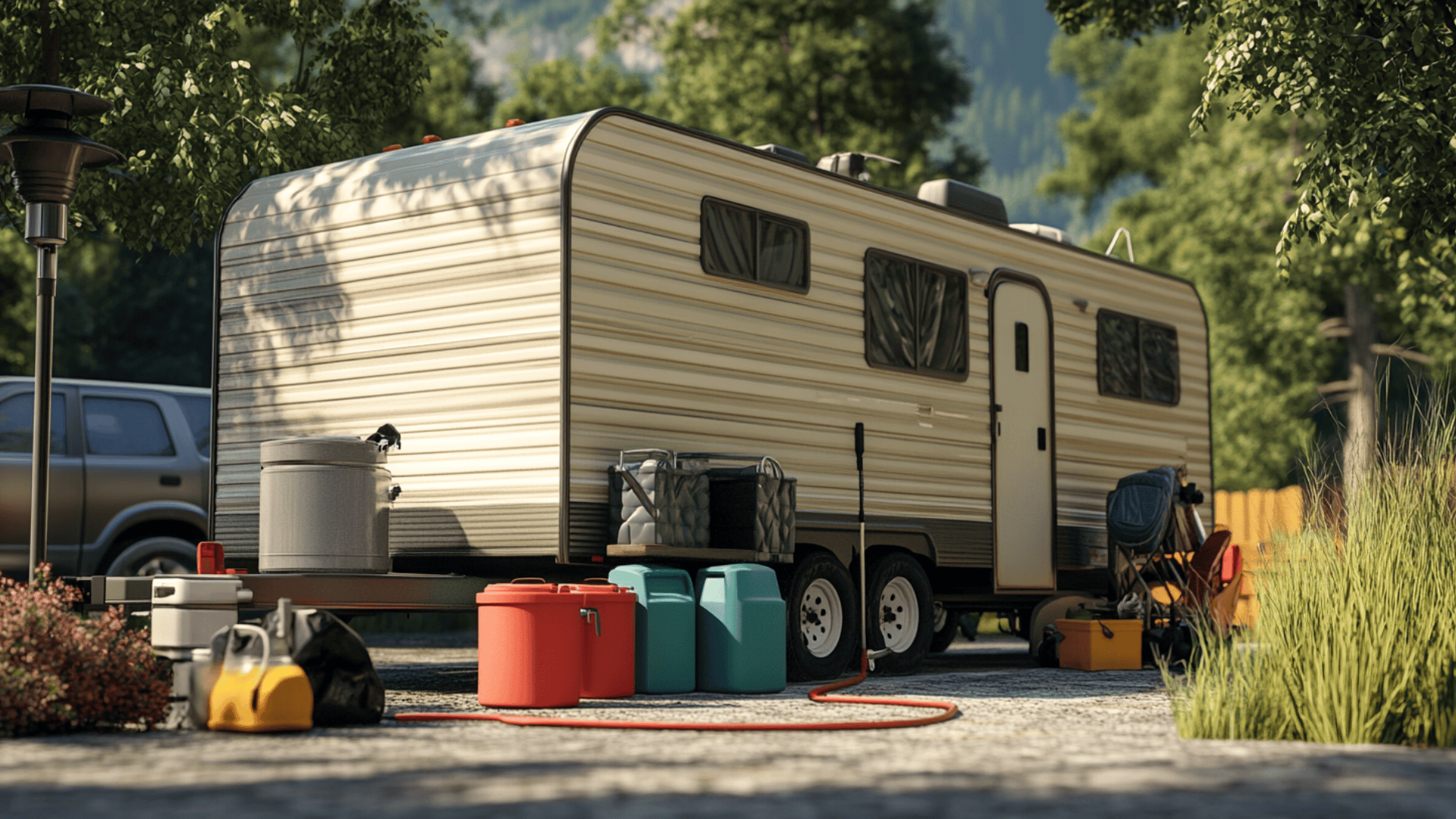
Here’s a simple formula to find your true travel trailer weight:
Total Towing Weight = Dry Weight + Cargo + Water + Propane + Other Fluids
For example, a 24-foot trailer might weigh 3,200 pounds empty, but once you add 800 pounds of gear, 300 pounds of water, and 50 pounds of propane, you’re actually towing 4,350 pounds.
Understanding these weights helps you pick the right towing vehicle and stay safe on the road.
Why Trailer Weight Really Matters
Knowing your trailer’s weight isn’t just about numbers—it’s about keeping you and others safe on the road. When your setup is too heavy, problems can pop up quickly and put everyone at risk.
1. Safety Concerns That Can’t Be Ignored

Overloaded trailers tend to sway or fish-tail at highway speeds, making them difficult to control—especially during sudden maneuvers or in strong winds.
Your stopping distance increases dramatically, which is particularly dangerous on wet roads or in emergency situations.
The extra strain on your tires can lead to blowouts, while excessive weight might cause even quality hitches to fail.
- Road Control Issues: Dangerous sway and handling problems at highway speeds
- Stopping Power: Up to 40% longer stopping distances when overloaded
2. Legal Headaches You’ll Want to Avoid

Most states have strict rules about trailer weights for good reason. Going over these limits doesn’t just risk a ticket—it can create serious complications.
You might face hefty fines at weigh stations or be forced off the road until you reduce weight.
Worse yet, if you’re involved in an accident while overloaded, your insurance company might deny your claim, leaving you financially exposed.
3. Protecting Your Tow Vehicle
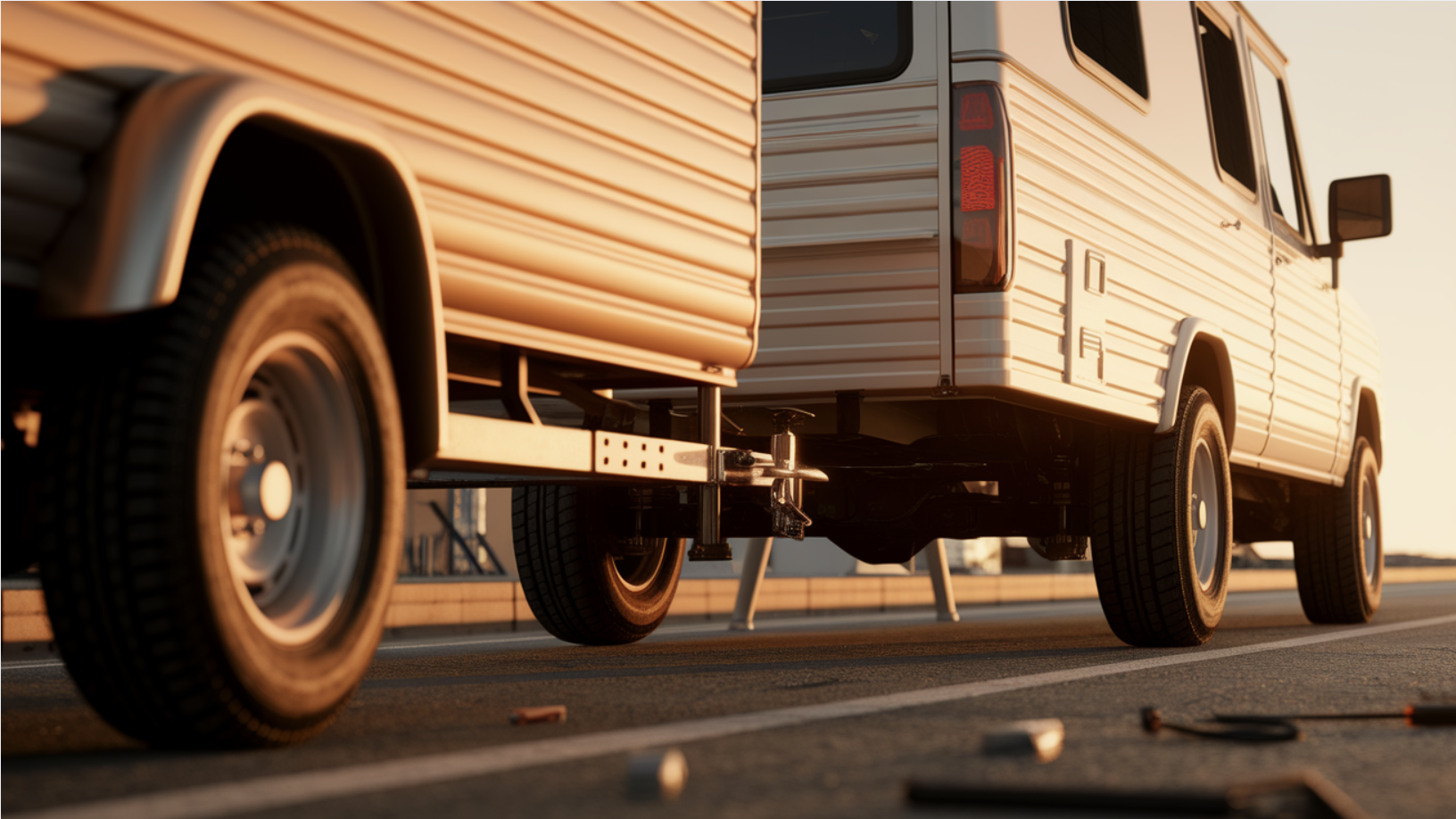
Your truck or SUV has specific towing limits that shouldn’t be ignored. Exceeding these recommendations puts enormous strain on critical systems:
Towing beyond capacity forces your transmission to work harder, generating excessive heat that breaks down fluids and wears out components.
Your braking system can overheat and fail when asked to stop too much weight repeatedly.
The suspension takes a beating as well, with springs, shocks, and other components wearing out much faster than normal. Even your engine suffers, potentially cutting thousands of miles from its useful life.
Key Weight Terms You Need to Understand
Before hitting the road, get familiar with these essential weight terms that appear on stickers and manuals. Knowing these helps you stay safe and legal.
Basic Trailer Weight Numbers
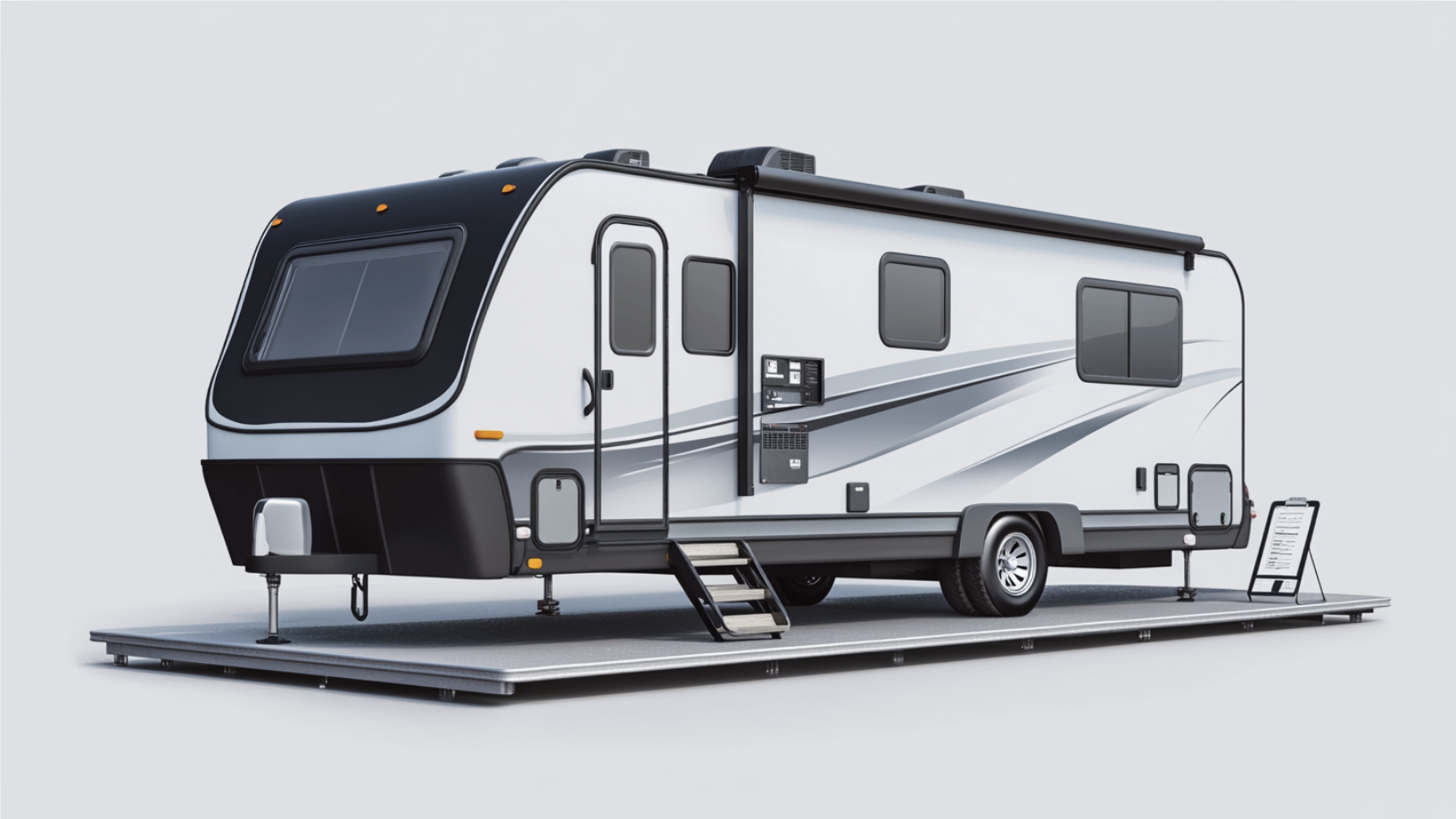
The starting point for weight calculations is understanding what your trailer weighs empty versus loaded.
- Dry Weight (UVW): What the trailer weighs empty when it leaves the factory
- GVWR: The absolute maximum your trailer should ever weigh when loaded
- CCC: Cargo Carrying Capacity = GVWR – UVW
Weight Distribution Factors
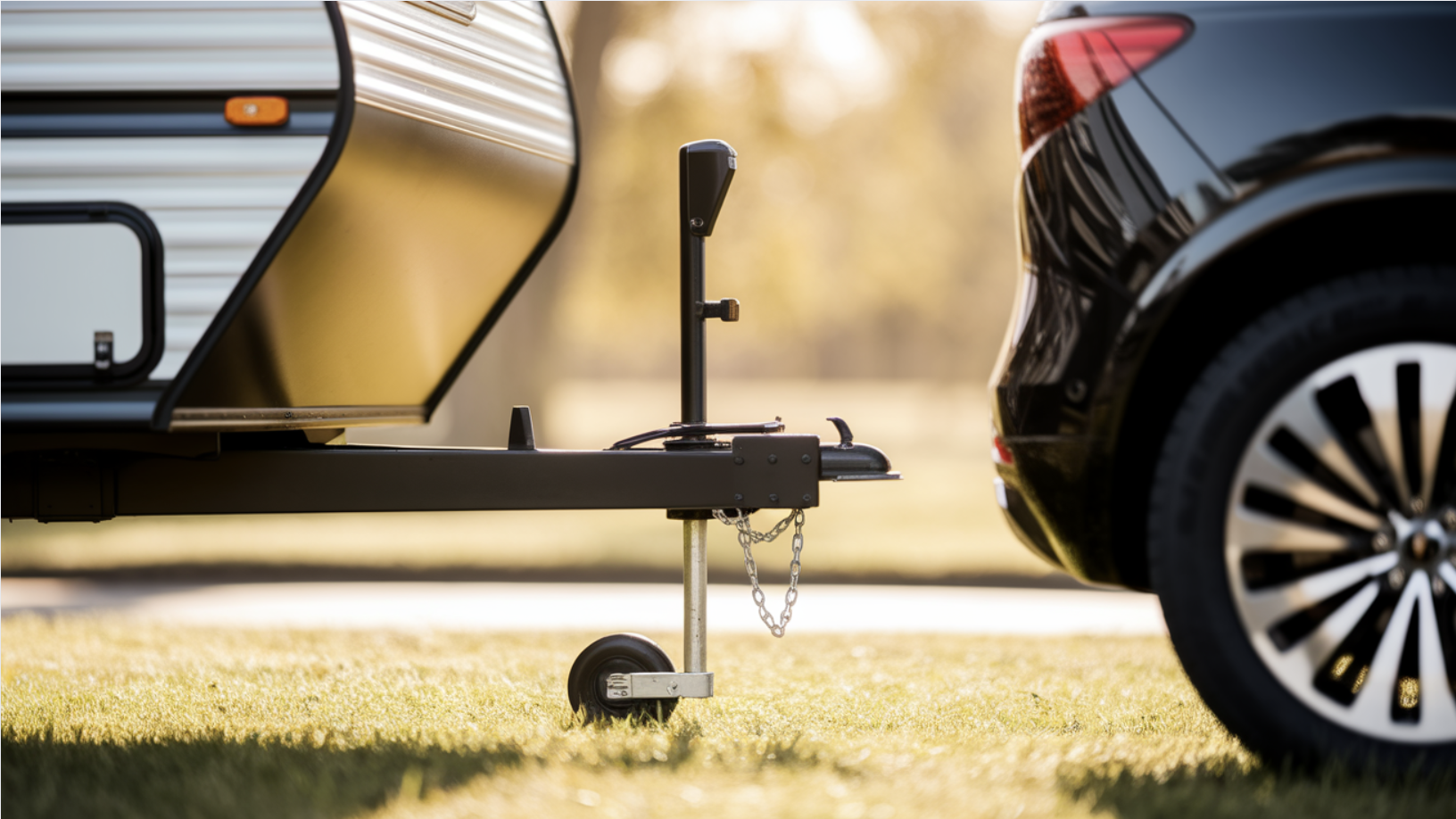
How weight is distributed throughout your trailer and towing setup is just as important as the total weight itself.
- Tongue Weight: 10–15% of trailer’s total weight rests on your hitch
- GAWR: Gross Axle Weight Rating – maximum weight each axle can safely support
- GCWR: Gross Combined Weight Rating – total allowable weight of your vehicle and trailer together
When planning for passengers, manufacturers often use SCWR (Sleeping Capacity Weight Rating), which estimates each person at about 154 pounds multiplied by the number of people your trailer can sleep.
What Affects a Travel Trailer’s Weight?
Travel trailers come in various shapes and sizes, and multiple factors contribute to their final weight. Understanding these elements helps you make better choices when buying or loading your trailer.
Size & Construction Basics
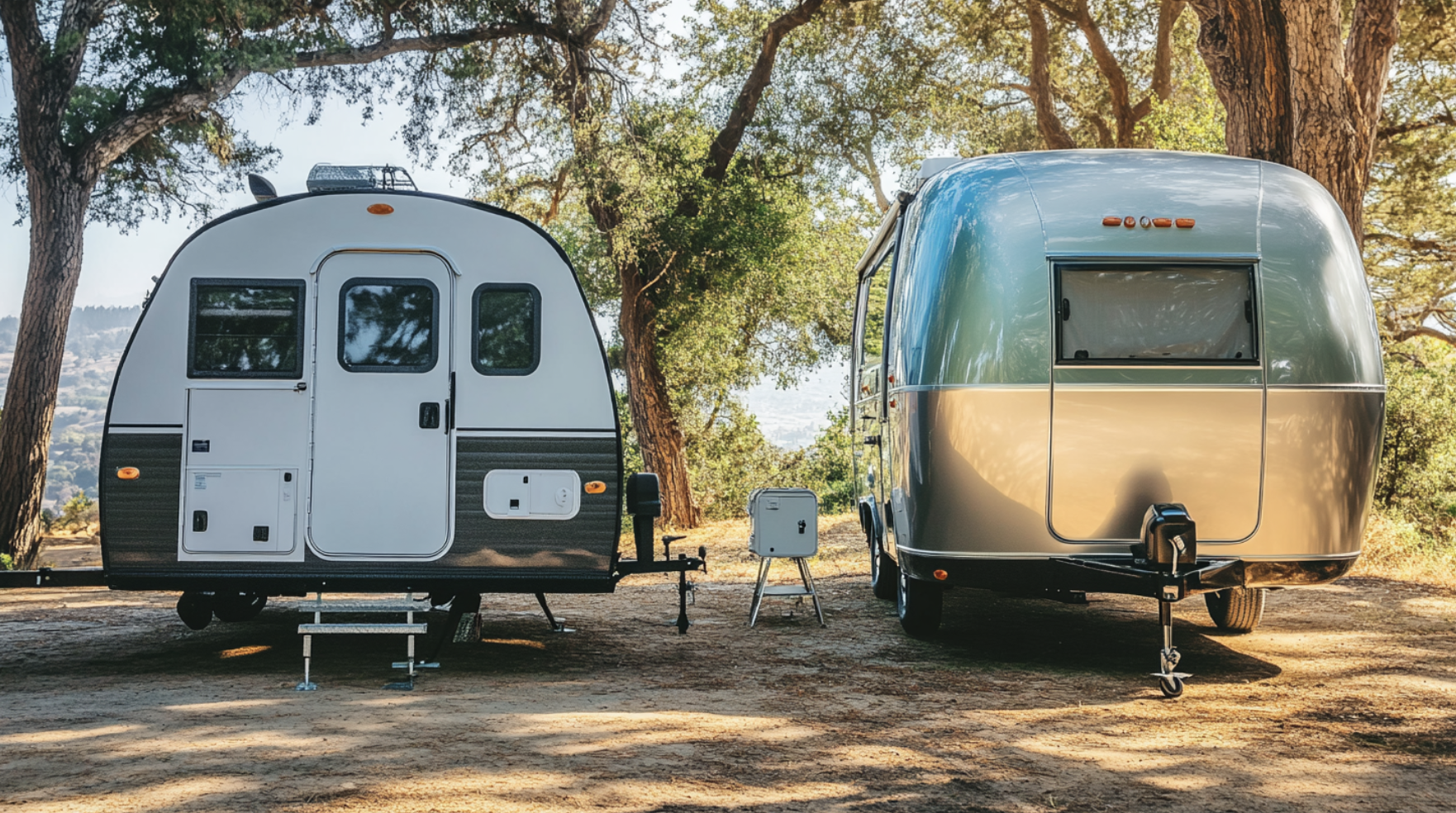
The physical dimensions of your trailer naturally impact its weight. Longer trailers typically include more features and amenities, making them substantially heavier.
A 15-foot trailer might weigh around 2,000 pounds, while a 35-foot model could tip the scales at 7,000 pounds or more.
Pro Tip: For every foot of trailer length, expect to add roughly 250-300 pounds to the base weight.
Construction materials make a significant difference, too. Modern lightweight trailers use:
- Aluminum framing instead of steel (saves 30% weight)
- Fiberglass or composite siding rather than wood
- Plastic components replacing metal where possible
Features That Add Up Fast
Many comfort features add significant weight to your trailer:
| FEATURE | ADDED WEIGHT |
|---|---|
| Slide-out section | 600-1,000 lbs each |
| Full bathroom | 300-500 lbs |
| Air conditioner | 120-180 lbs |
| Larger refrigerator | 90-150 lbs |
| Generator | 100-250 lbs |
| Upgraded furniture | 200-400 lbs |
Fact Check: While manufacturers often advertise slide-outs as weighing 300 pounds, the total impact on weight is much higher when you factor in the extra framing, furniture, and features inside the slide-out section.
A basic trailer with minimal amenities might weigh thousands of pounds less than a luxury model of the same length.
Consumables & Moving Weights
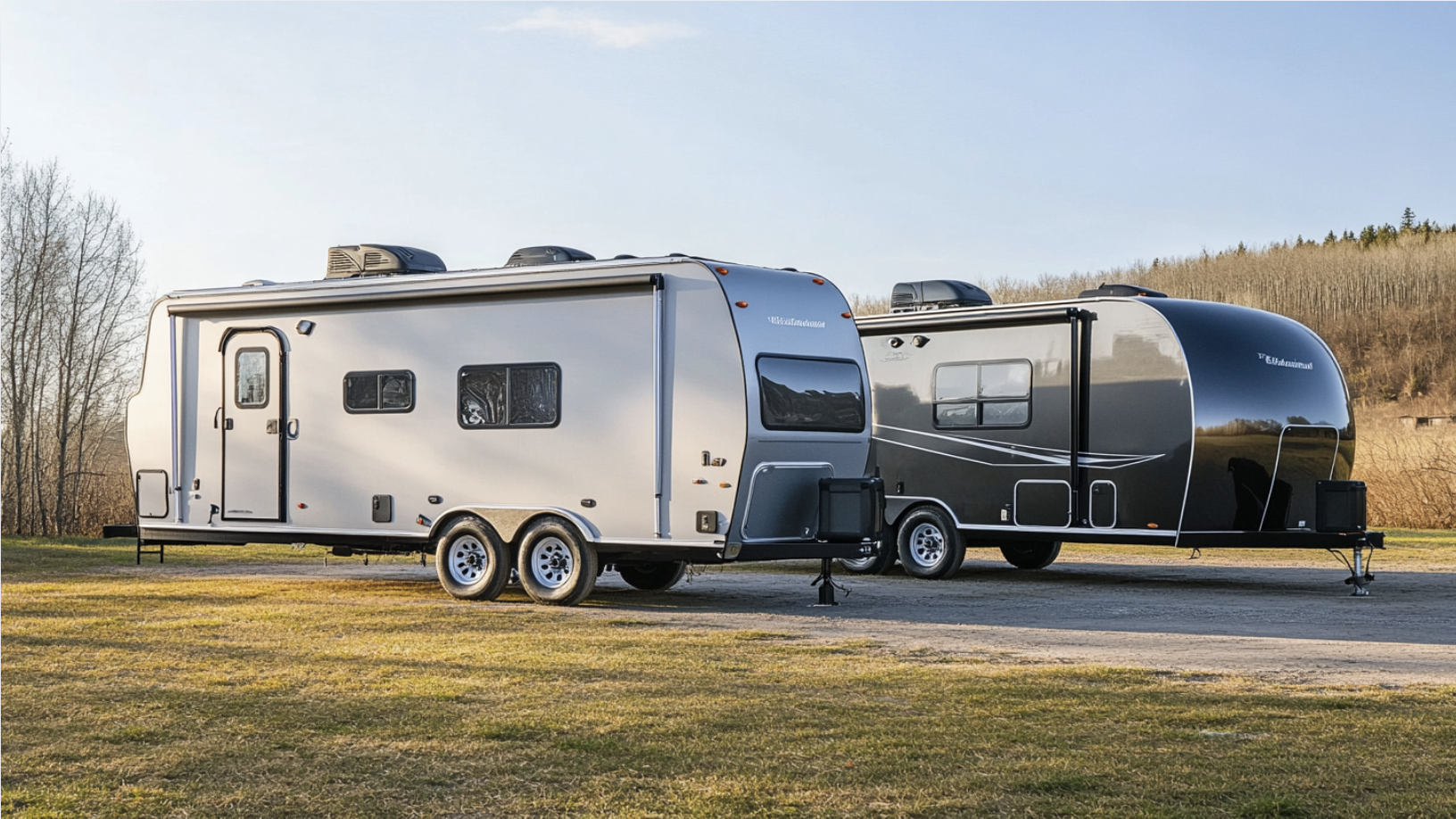
The weight of your trailer changes throughout your trip due to consumables:
Fresh water is surprisingly heavy—about 8.3 pounds per gallon. A full 40-gallon freshwater tank adds 332 pounds! Similarly, propane (about 4.2 pounds per gallon) and waste tanks can add several hundred pounds when full.
Your personal items often weigh more than you realize. Clothing, food, cooking equipment, outdoor gear, and electronics can easily add 1,000+ pounds to your trailer’s weight.
How to Measure and Manage Your Trailer Weight
Knowing your trailer’s actual weight is crucial for safe travel. Here’s how to get accurate measurements and manage your load effectively.
1. Finding the True Weight
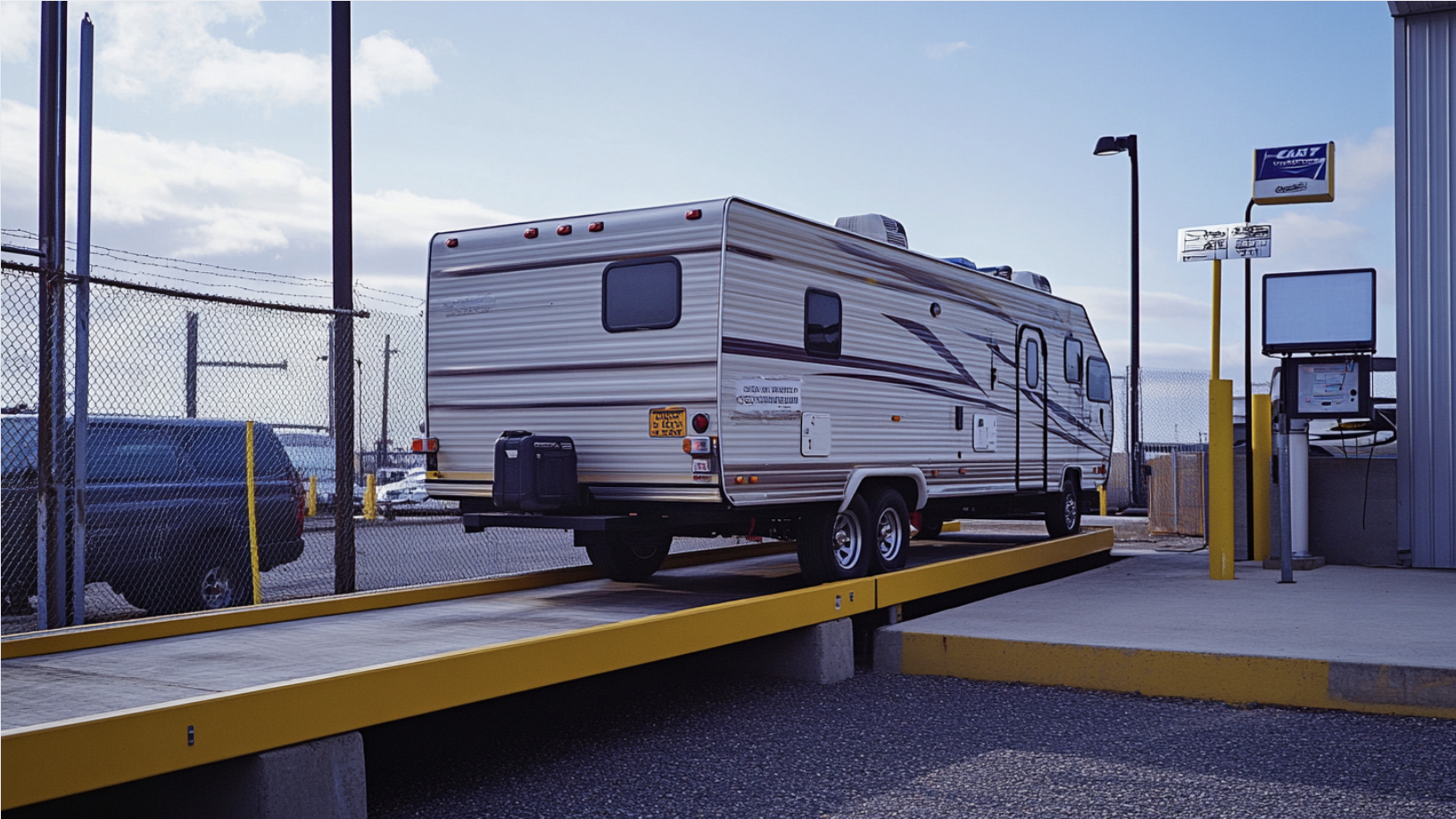
The manufacturer’s specifications provide a starting point, but your actual trailer likely weighs more. For accurate measurement:
- Check Documentation: Start with your VIN sticker and manufacturer specs
- Use Certified Scales: Public scales give you real-world weights
- Weigh When Loaded: Always weigh your trailer packed as you’ll actually use it
Some RV dealers offer weighing services, or you can use CAT scales at truck stops (about $15-20 per weighing). Some recycling centers, landfills, and agricultural supply stores also have scales available to the public.
2. Smart Weight Management Tactics
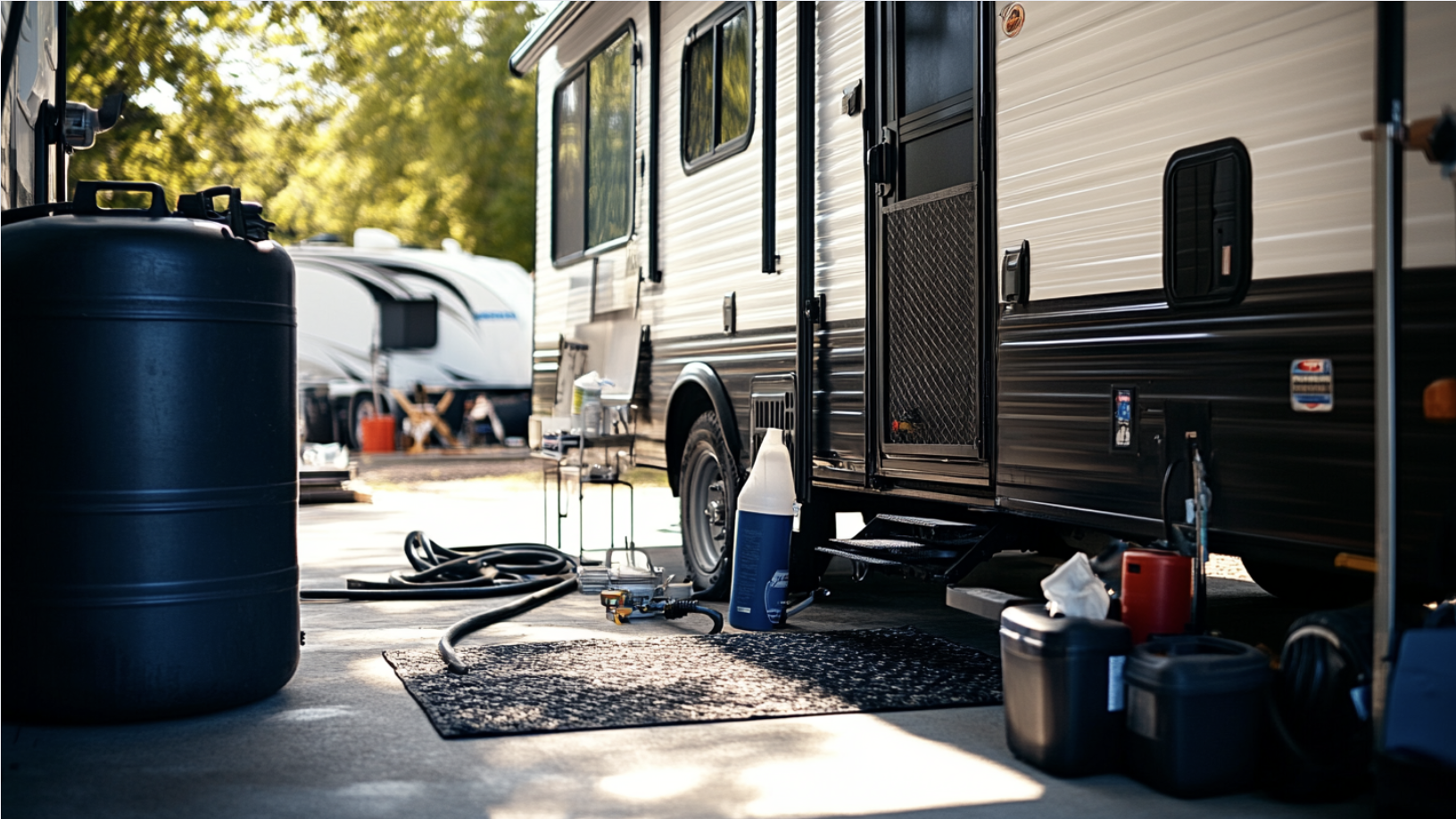
Once you know your weight, these strategies can help you manage it better:
- Water Management: Travel with only ⅓ of your water tank full, then fill up at your destination
- Waste Handling: Empty black and gray tanks before travel days
- Smart Packing: Store heavy items low and centered over the axles
- Weight Reduction: Replace heavy original furniture with lightweight alternatives
Pro Tip: Keep a small digital luggage scale in your trailer. Before adding new items to your setup, weigh them first to maintain awareness of your weight budget.
3. The “Bring Half, Pack Twice” Rule
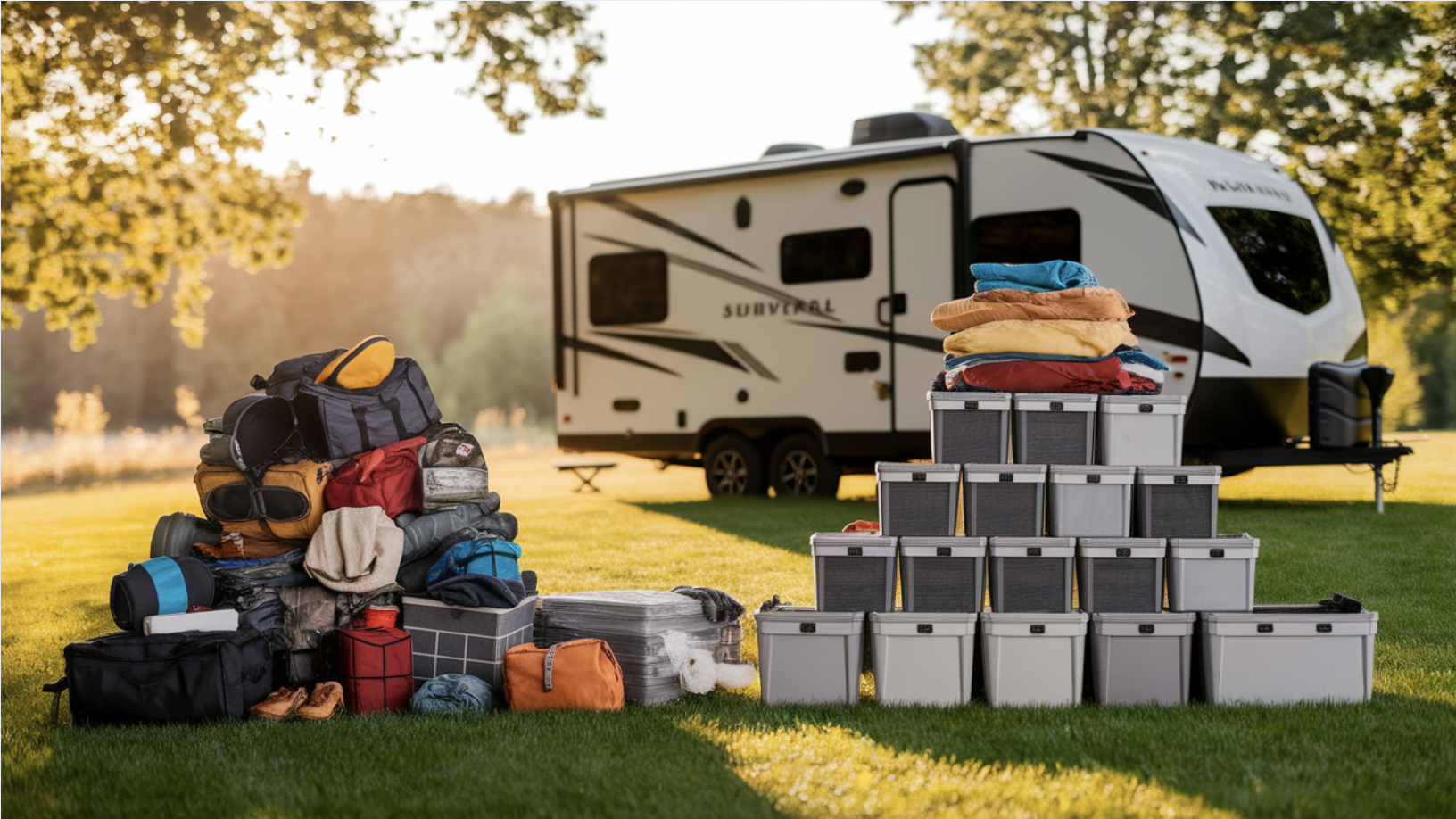
Many experienced trailer owners follow this simple rule: lay out everything you think you need, then put half of it back. Most people overpack significantly for their trips.
Reality Check: The average family brings over 100 pounds of unused items on a typical weeklong camping trip!
Focus on multipurpose items and essentials rather than “just in case” items. Remember that many campgrounds and nearby towns have stores where you can purchase forgotten items if truly needed.
With careful management, you can keep your trailer weight in check while still bringing everything you need for a comfortable trip.
Dangers of Overloading and How to Avoid It
Pulling an overloaded trailer is like trying to stop a runaway train – dangerous and potentially disastrous. Despite this, many trailer owners unknowingly hit the road with too much weight, putting themselves and others at risk.
1. When Things Go Wrong
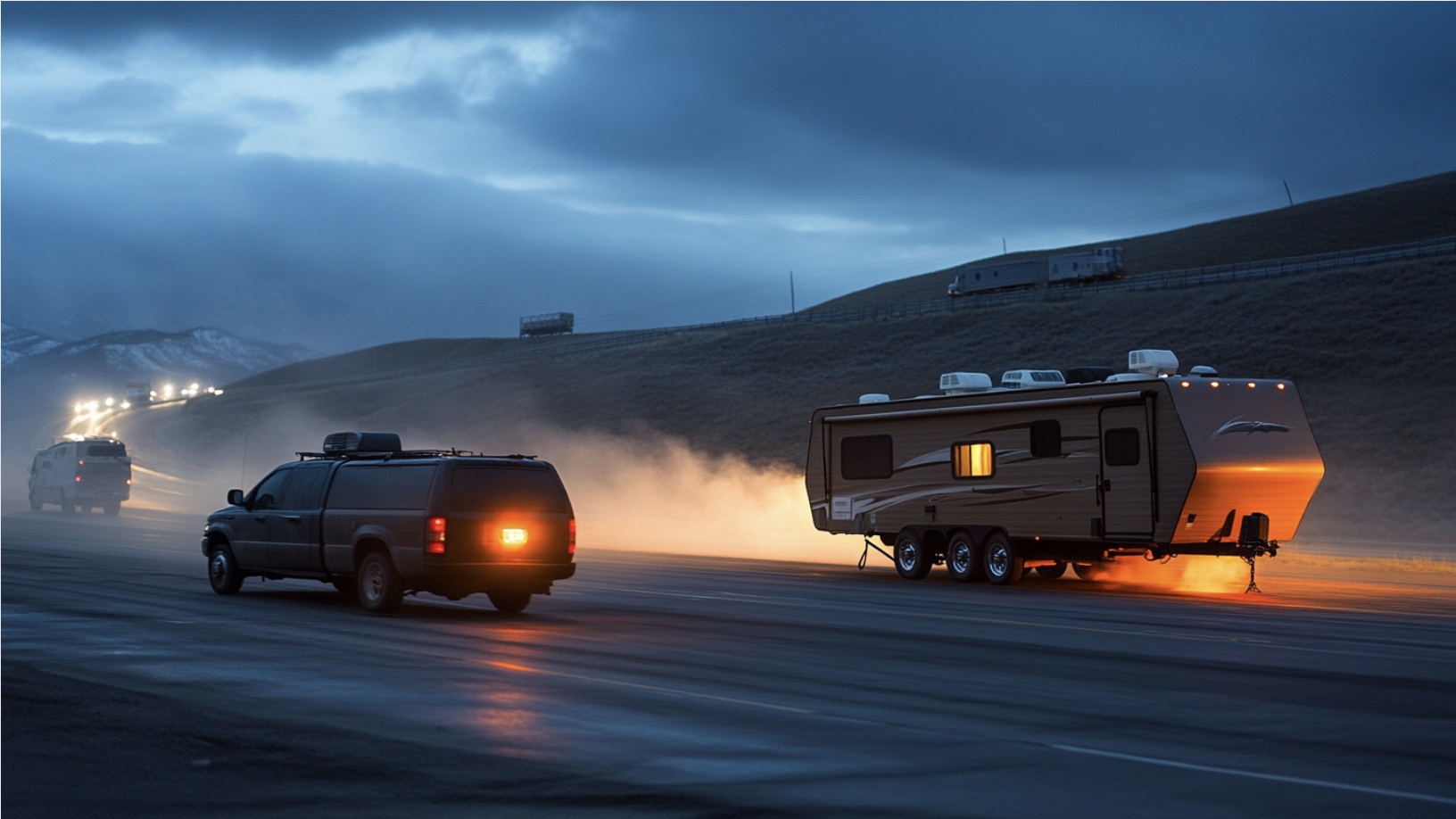
When you exceed your trailer’s weight limits, several serious problems can develop:
Brake failure is perhaps the most frightening consequence. Overloaded trailers generate excessive heat in the braking system, causing brake fade or complete failure – particularly on long downhill stretches.
This can make stopping in emergency situations nearly impossible.
The front wheels of your tow vehicle can become dangerously light when too much weight pushes down on the hitch, reducing your ability to steer effectively.
This weight imbalance makes your entire setup prone to swaying, especially during wind gusts or when passing large trucks.
2. Structural Failures and Long-Term Damage
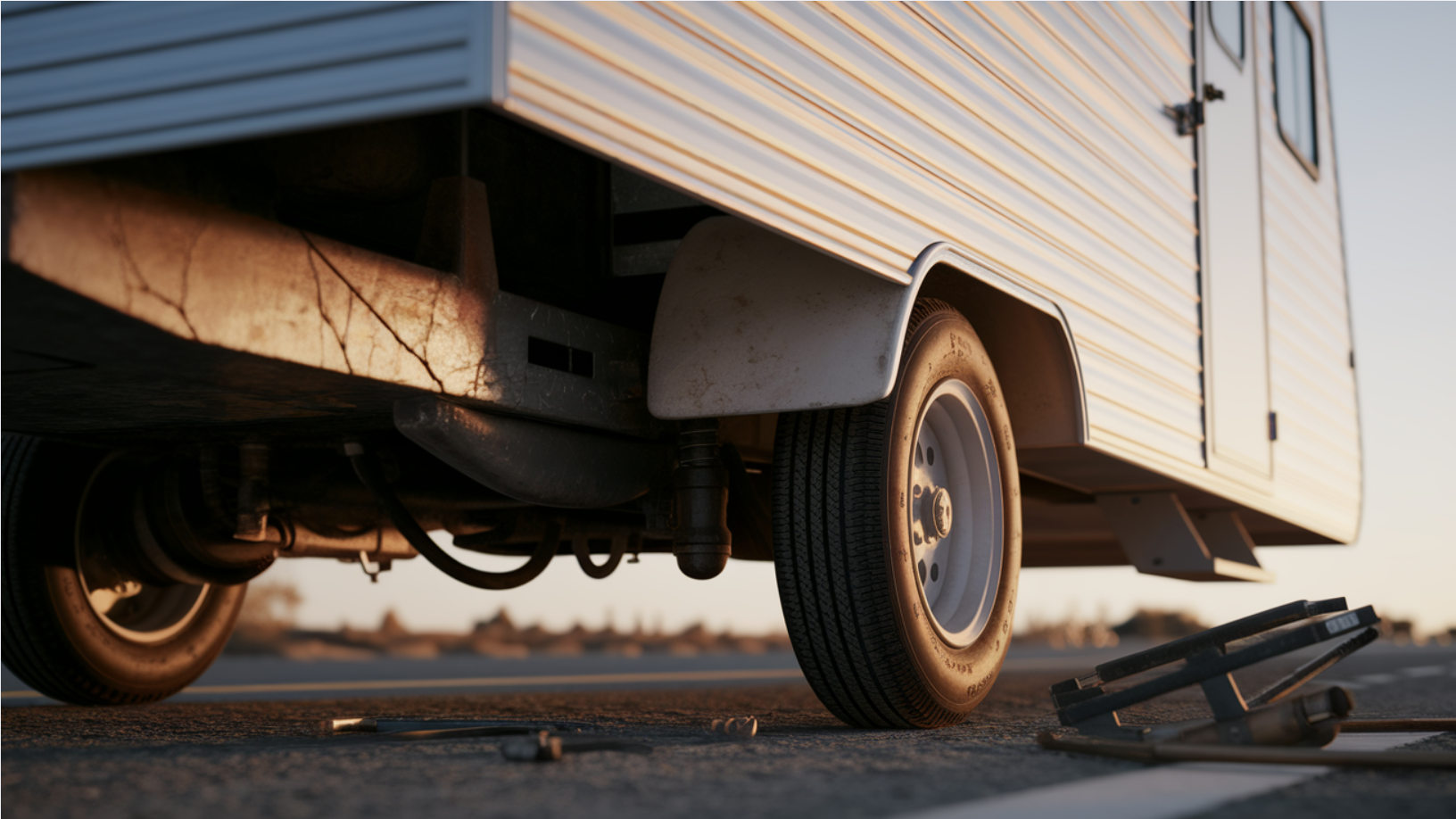
Overloading doesn’t just affect how your trailer handles on the road – it causes lasting damage to the structure itself. The frame can develop cracks or permanent bends under excessive weight.
Suspension components that should last years may fail in months, while wheel bearings overheat and break down prematurely.
Your tires face perhaps the greatest risk. Overloading increases heat buildup and internal pressure, dramatically raising the chance of blowouts – often at the worst possible moment on highways or remote roads.
3. Smart Prevention Strategies
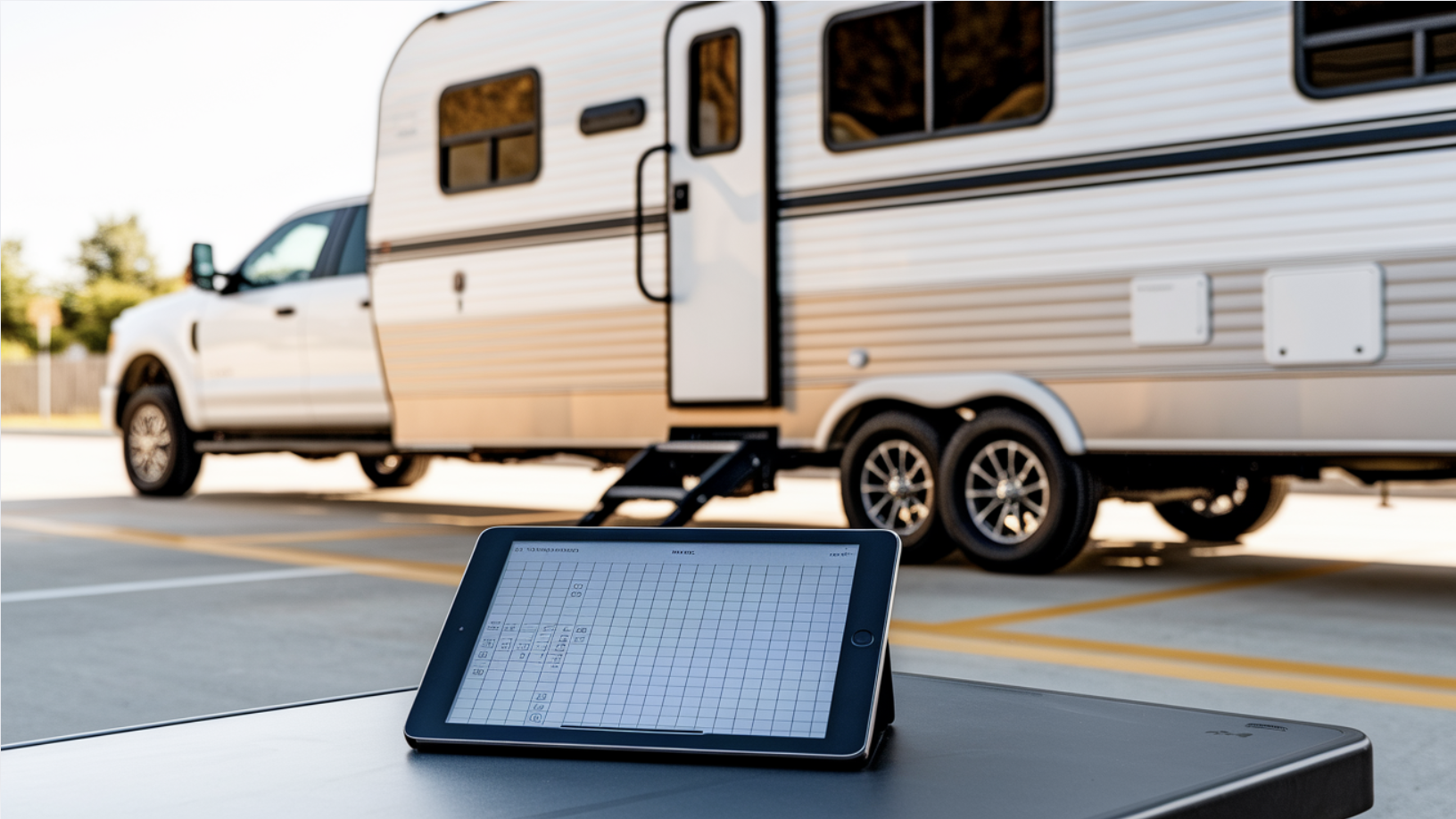
Avoiding these dangers requires understanding your specific equipment limitations:
- Take time to learn the weight ratings for your trailer (GVWR), tow vehicle capacity, and hitch rating. The lowest number among these three becomes your absolute maximum.
- Scale your load. Visit a public scale to weigh your setup fully loaded as you’d travel. Many owners are shocked to discover they’re hundreds or even thousands of pounds over their limits.
- Creating a simple load-planning document can help tremendously. List categories of items with estimated weights and update it as you modify your packing list or trailer setup.
Pro Tip: Leave a 10% safety margin below your maximum capacity to account for unexpected additions and the weight of passengers.
4. Balance Is Key
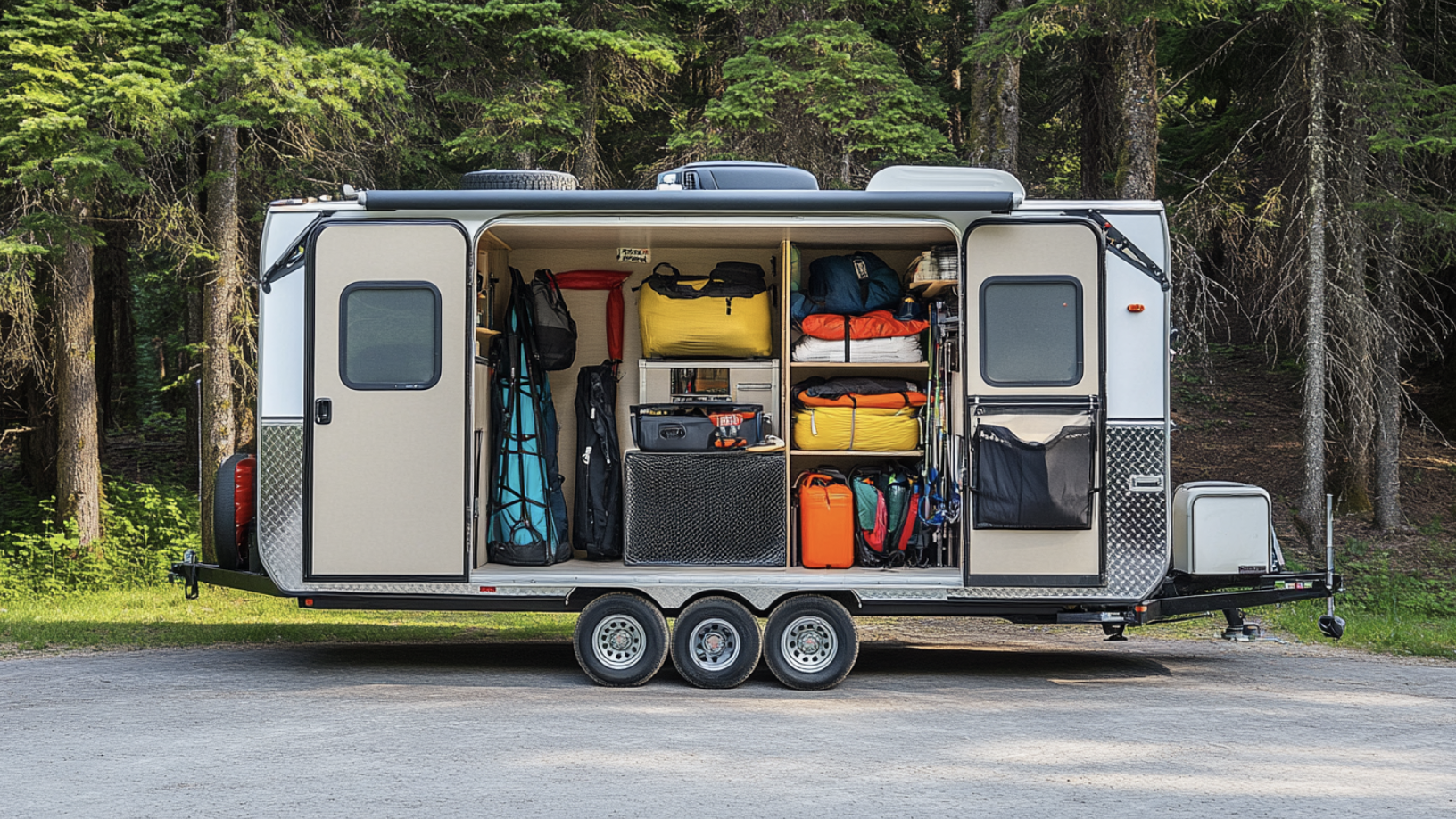
How you distribute weight throughout your trailer is crucial for safe towing:
Place roughly 60% of the cargo weight forward of the axle, but not all on the tongue. Heavy items should stay low to the floor, and everything must be secured to prevent shifting.
Remember that even well-balanced trailers can become dangerous if loads shift during travel or after adding supplies mid-trip.
By respecting weight limits and distributing your load thoughtfully, you’ll not only avoid dangerous situations but also extend the life of your equipment and enjoy more worry-free adventures on the road.
Final Words
Mastering travel trailer weight knowledge keeps you safer on the road and protects your investment for years to come. The numbers matter—not just for legal compliance but for real-world driving situations you’ll face on your adventures.
Take time to weigh your setup, understand your specific limits, and pack thoughtfully. Remember that proper weight distribution is just as important as the total on the scale.
By applying the tips we’ve covered, you’ll tow with confidence, avoid costly repairs, and focus on making memories instead of managing emergencies.
Happy camping starts with smart loading! Next time you prepare for a trip, give your trailer’s weight the attention it deserves before hitting the open road.
Come back for more helpful travel tips, gear recommendations, and campsite reviews.

